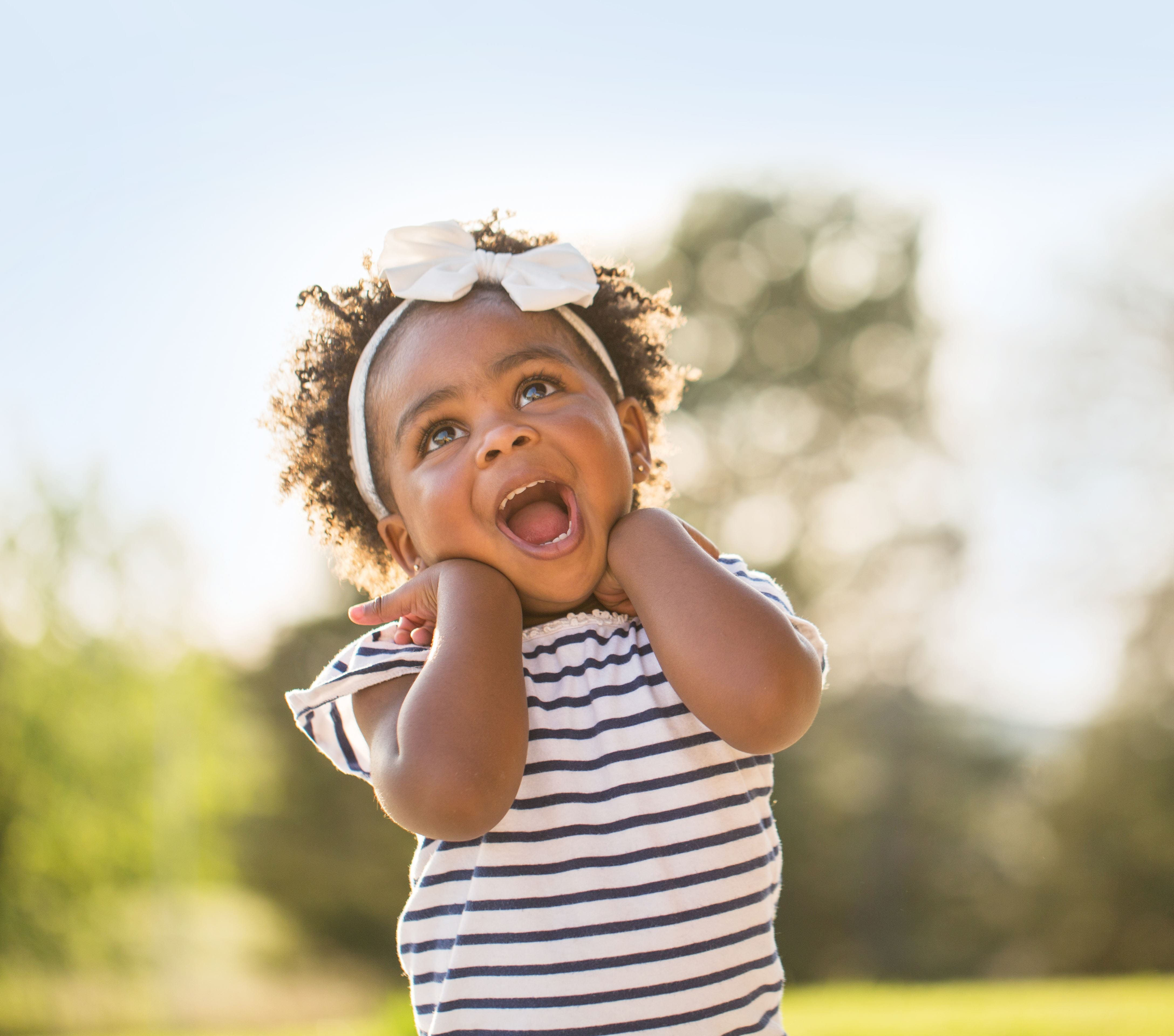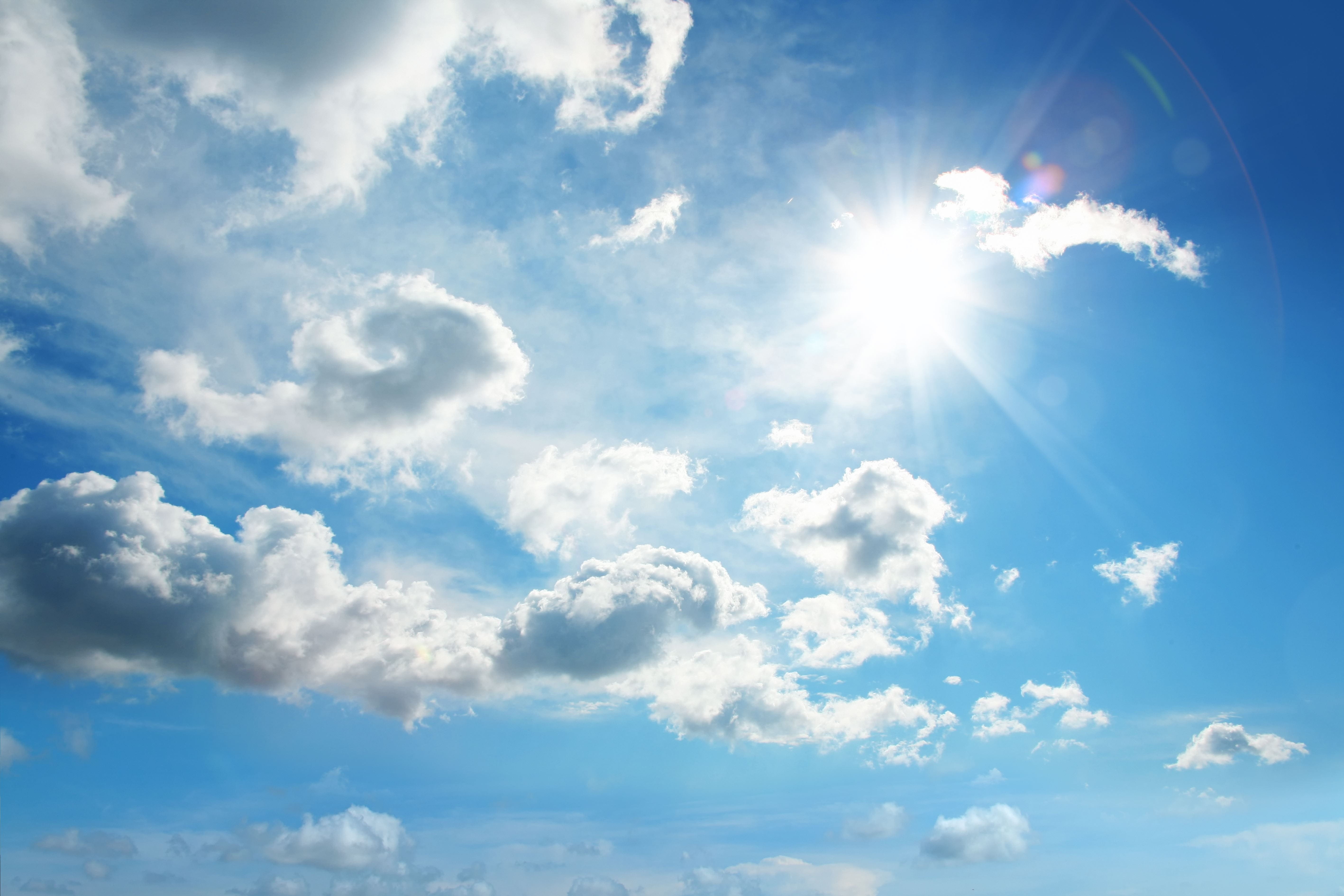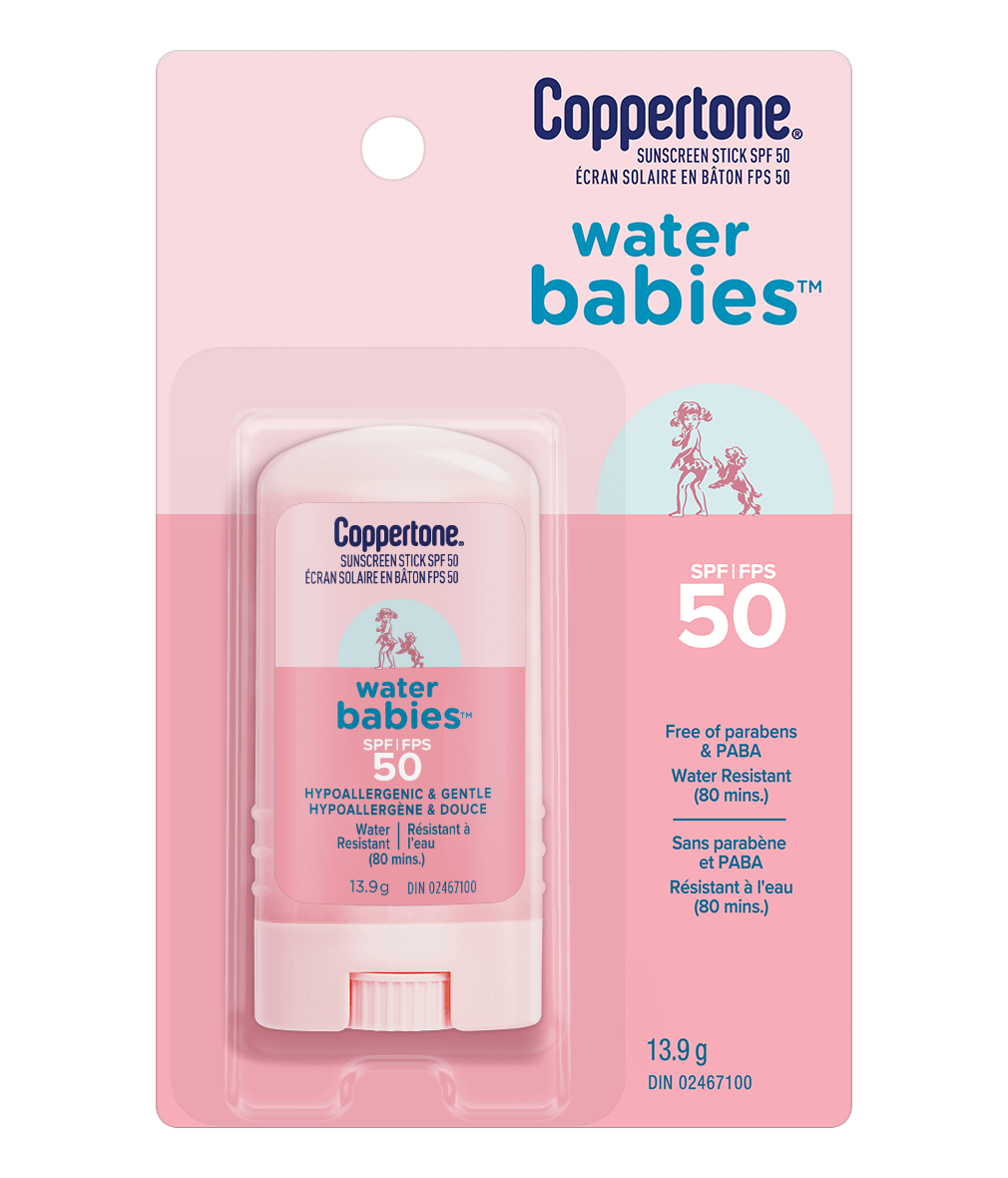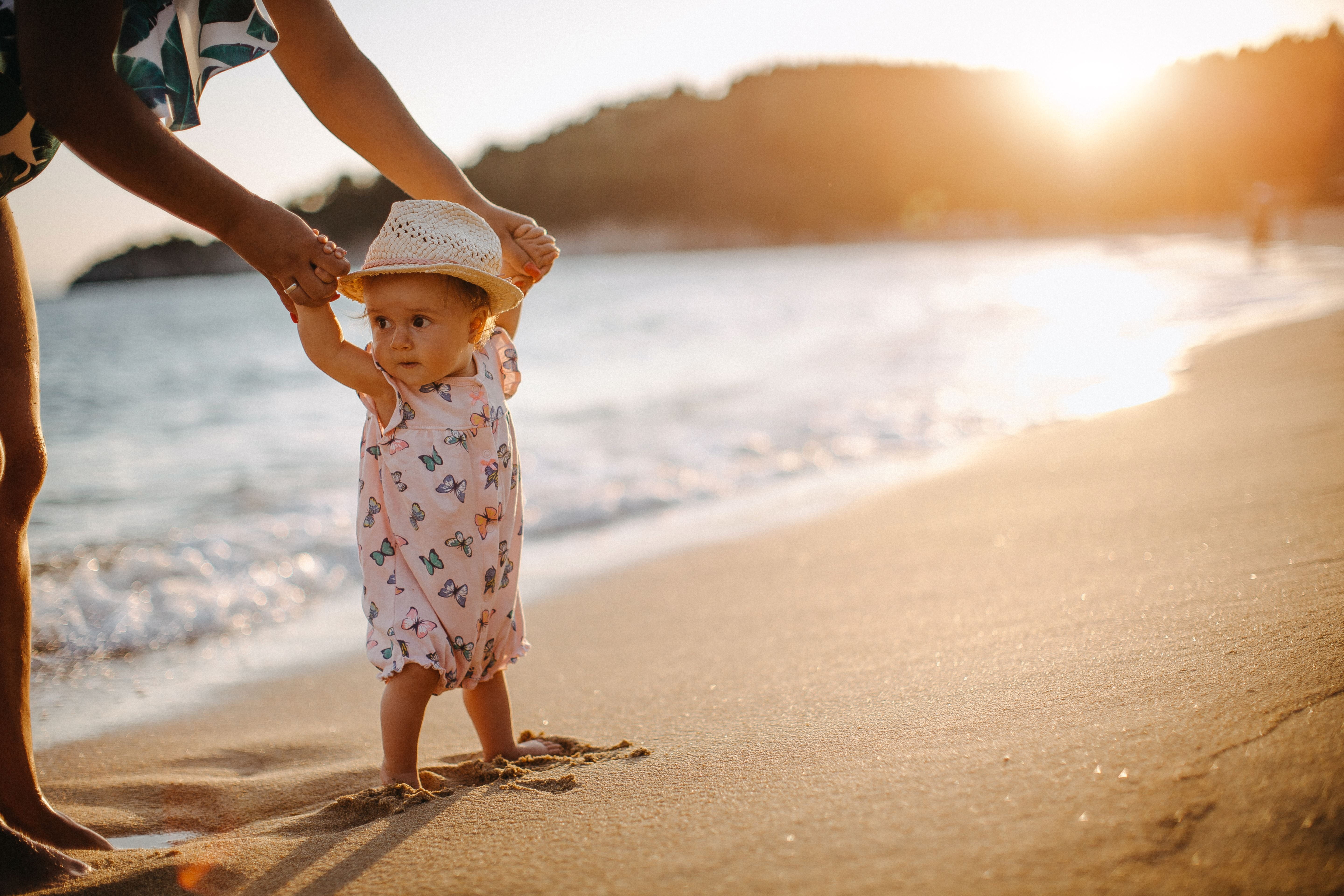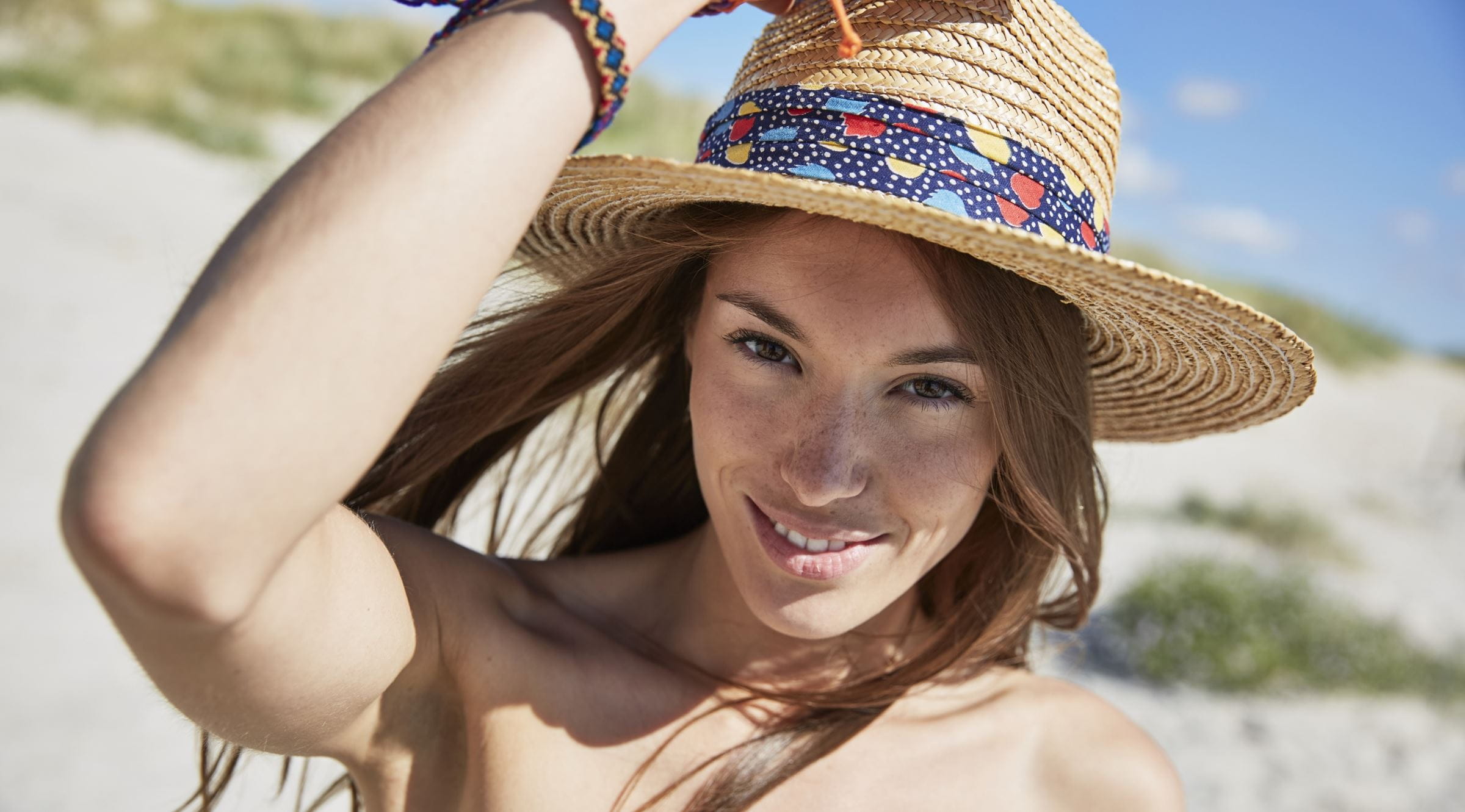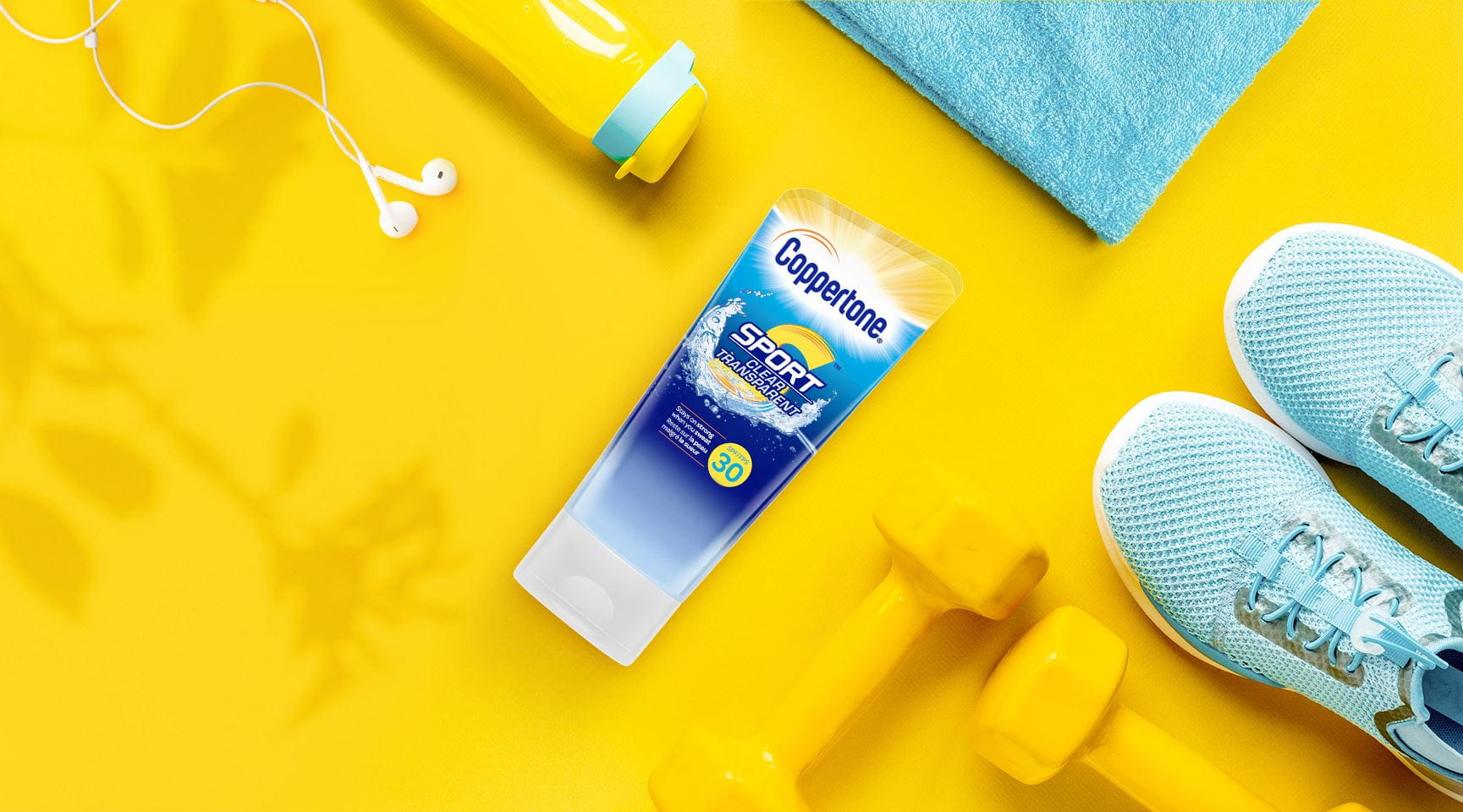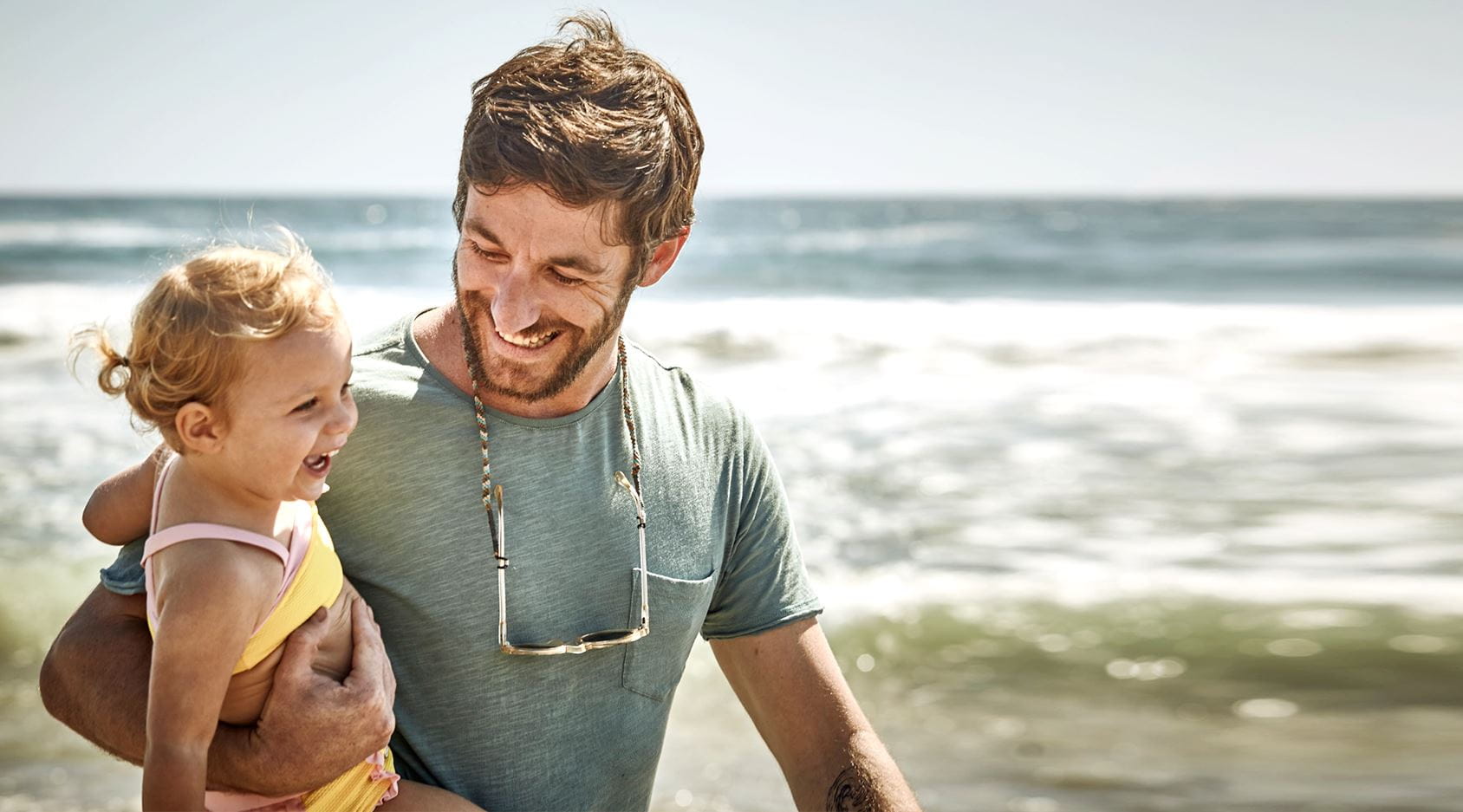BABIES LOVE TO BE IN THE SUN – BUT BE SURE THEIR
SENSITIVE SKIN IS KEPT SAFE
HOW DOES SUNSCREEN WORK TO PROTECT THE SKIN?
Babies are extremely sensitive to sunlight as they have not yet developed a natural barrier that will
eventually protect them from the sun’s UV rays. At this early stage, a baby’s skin can generally protect itself for approximately 5 minutes before it starts being affected.
The use of sunscreen is therefore essential whenever children are exposed to the sun as this will extend this period of protection. A sun protection factor of 50 is the ideal recommendation, however, babies and
children should use a sun protection factor of at least 30. An SPF cream with a protection factor of 30 will effectively extend skin protection against the sun to approximately two and a half hours.
CAN BABIES UNDER 6 MONTHS WEAR SUNSCREEN?
Wearing sunscreen is a given for people of almost all ages and skin types, including men, women and children. This may also apply to your baby — but it really depends on exactly how young they are, since their skin is still in the early stages of development, and therefore extremely sensitive.
Products like Coppertone Waterbabies Lotion are specifically designed to keep young kids safe — but it’s important to note that many doctors recommend avoiding all sun exposure for children younger than 6 months old.
In general, infants should stay out of the sun and wear sun-protective clothing. If your child is over the age of 3, you’ll still want to limit prolonged exposure since their skin is still more vulnerable to harmful UV rays.
